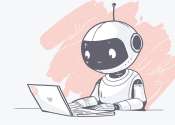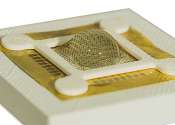Science (from the Latin scientia, meaning "knowledge") refers to any systematic knowledge-base or prescriptive practice that is capable of resulting in a prediction or predictable type of outcome. In this sense, science may refer to a highly skilled technique or practice.
In its more restricted contemporary sense, science refers to a system of acquiring knowledge based on scientific method, and to the organized body of knowledge gained through such research. This article focuses on the more restricted use of the word. Science as discussed in this article is sometimes called experimental science to differentiate it from applied science—the application of scientific research to specific human needs—although the two are often interconnected.
Science is a continuing effort to discover and increase human knowledge and understanding through disciplined research. Using controlled methods, scientists collect observable evidence of natural or social phenomena, record measurable data relating to the observations, and analyze this information to construct theoretical explanations of how things work. The methods of scientific research include the generation of hypotheses about how phenomena work, and experimentation that tests these hypotheses under controlled conditions. Scientists are also expected to publish their information so other scientists can do similar experiments to double-check their conclusions. The results of this process enable better understanding of past events, and better ability to predict future events of the same kind as those that have been tested.









